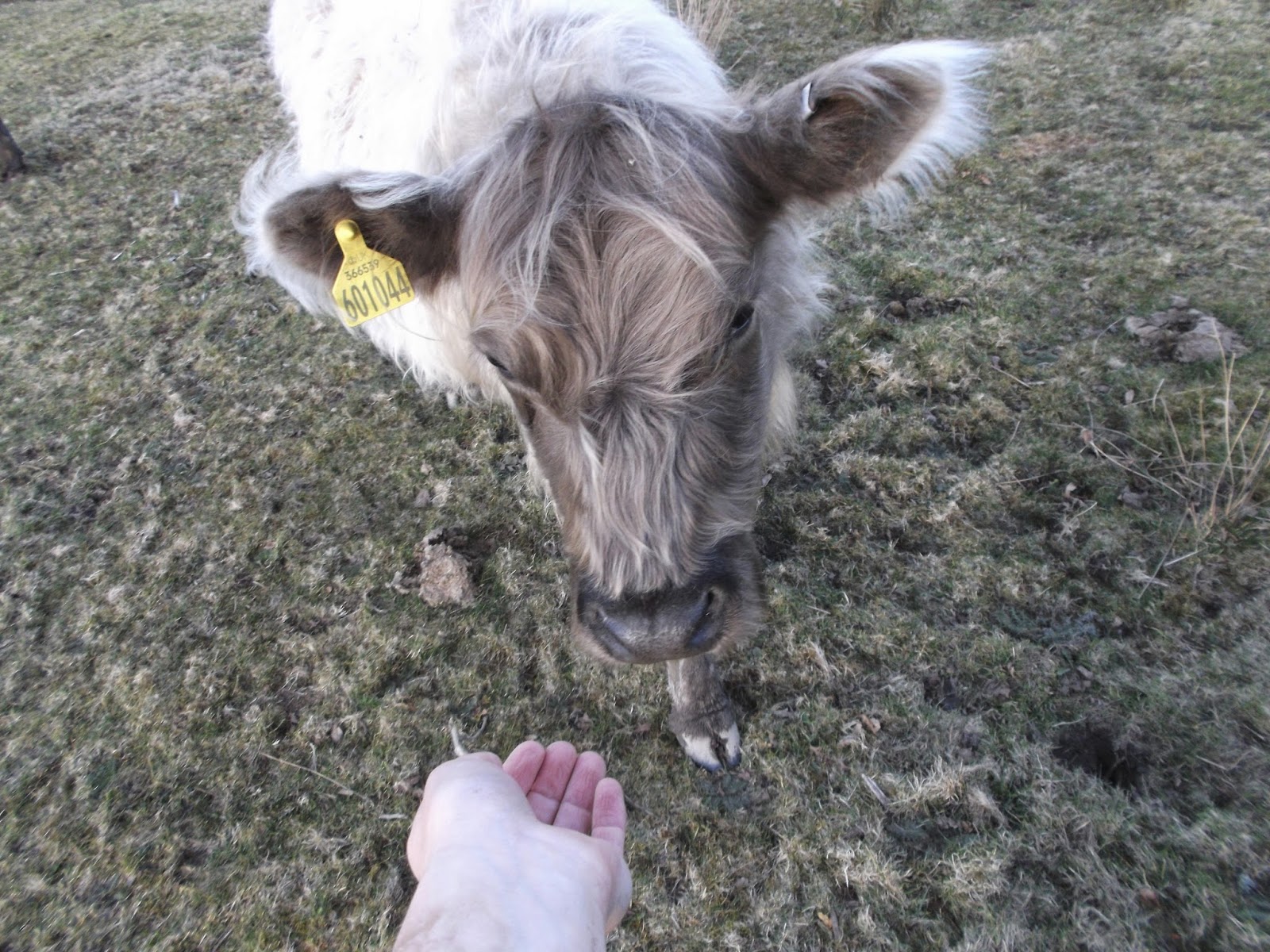Last time I was in the
U.K., I stayed as a wwoofer on a beautiful biodynamic farm in the welsh hills.
I slept in a little attic room up a ladder, worked on the farm, and cooked and
ate with the other young people.
The farm was part of a
community network of shared gardens, where many people shared the labour and
helped to provide organic vegetables to families in the area. Ty’r Eithin’s
gardens alone fed 60 families —a box of vegetables a week, each, for a year.
This is the best kind
of food, food that is better than medicine.
 In the mornings, I fed
and watered the cows, and in the afternoons I worked in the gardens. I helped
tether out the goats, shovelled enormous quantities of manure, helped catch a
woolly and muscular ram, made music, went morris dancing, dug weeds, discussed
philosophy. It was heaven.
In the mornings, I fed
and watered the cows, and in the afternoons I worked in the gardens. I helped
tether out the goats, shovelled enormous quantities of manure, helped catch a
woolly and muscular ram, made music, went morris dancing, dug weeds, discussed
philosophy. It was heaven.
The people whom I met
there believed all sorts of things – there were vegetarians, pescetarians, and
animal rights’ activists, adherents of Taoism and paganism, advocates of Rudolf
Steiner, pseudo-Christians and nonconformists… They were all committed to a
natural lifestyle. They were all united by a love and respect for the land.
There is something
about simple farm work, I think, that can heal almost anything. At Ty’r Eithin,
after a long period of mental darkness, I found the sunshine gradually seeping
back into my bones.
The farm was a few
hundred years old, and there was a quiet wisdom in its fields and stones.
 The robust but elderly
gentleman who owned it was also full of wisdom; he and his wife had decided to
make it a place where young people could come and experience nature and living
close to the earth.
The robust but elderly
gentleman who owned it was also full of wisdom; he and his wife had decided to
make it a place where young people could come and experience nature and living
close to the earth.
“Most
people come here looking for an escape,” he said, “—escape from all the pressures and all the damage of a consumerist society. And that’s okay, and it's important. But in
the end we should not be trying to escape. We should be starting something new. We must work together,
work from the bottom up, to build something that will contribute new life to the world.”


